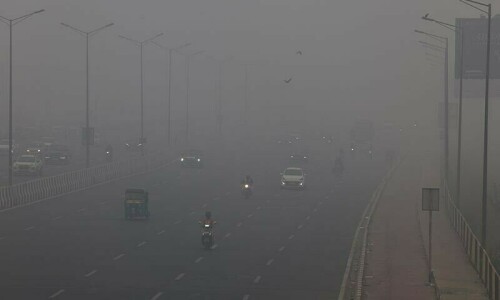TORONTO: Twice since July 2022, Moninder Singh, spokesperson for a Sikh advocacy group in Canada’s British Columbia province, has had police come to his door in the Vancouver suburb of Surrey.
Twice, Singh said, they warned him that he faced an imminent risk of assassination, though they did not say from whom.
These warnings prompted the 43-year-old Canadian to stay away from his home for months at a time _ away from his wife and children, ages 15 and 11.
“India has gotten away with so much over the years and under Modi’s regime, its impunity,” Singh said, referring to Indian Prime Minister Narendra Modi. “They feel like they’re just so powerful that no one’s really going to hold them in check. And they probably have been correct over the past decade or so.”
Moninder Singh’s experience illustrates the threats that some members of Canada’s Sikh community _ the largest outside India’s Sikh-majority East Punjab _ are facing at a time of mounting tensions between the governments of India and Canada.
The Royal Canadian Mounted Police, the country’s national police service, said this week it has communicated more than a dozen threats to people like Singh who are advocating for the creation of a Sikh homeland carved out of India. Canada’s Sikhs have been in the spotlight since Prime Minister Justin Trudeau last year accused India of involvement in the murder of Hardeep Singh Nijjar, a Sikh separatist leader in Canada and Moninder Singh’s friend, who was shot in Surrey on June 18 last year.
The Indian government has denied involvement in the killing of Nijjar and accused Canada of providing a safe haven for Sikh separatists.
ON Monday, Canada expelled six Indian diplomats, linking them to Nijjar’s murder and alleging a broader effort to target Indian dissidents in Canada through killings, extortion, use of organised crime and clandestine information-gathering.
India retaliated by ordering the expulsion of six Canadian diplomats and called the allegations preposterous and politically motivated. Trudeau said on Monday Canada has found “clear and compelling evidence that agents of India’s government have engaged in and continue to engage in activities that pose a significant threat to public safety”.
Canadian police spokesperson Camille Boily-Lavoie said law enforcement agencies have a duty to warn people “who are subjects of a clear, serious and imminent threat of death or serious bodily harm”.
The warnings left Moninder Singh shaken.
“They don’t tell you who, where _ any of those types of things,” said Singh, who serves as spokesperson for the activist group B.C. Gurdwaras Council. “They don’t tell you what to do, really. They just kind of give you an idea that, `Hey, we’ve told you now, now you should be warned and you should take precautions.’”
Balpreet Singh, legal counsel for the World Sikh Organisation of Canada advocacy group, said the Sikh community has “seen a rise in violence over the past few months in terms of the targeting of Sikh activists, in terms of extortions.”
Published in Dawn, October 19th, 2024














































Dear visitor, the comments section is undergoing an overhaul and will return soon.